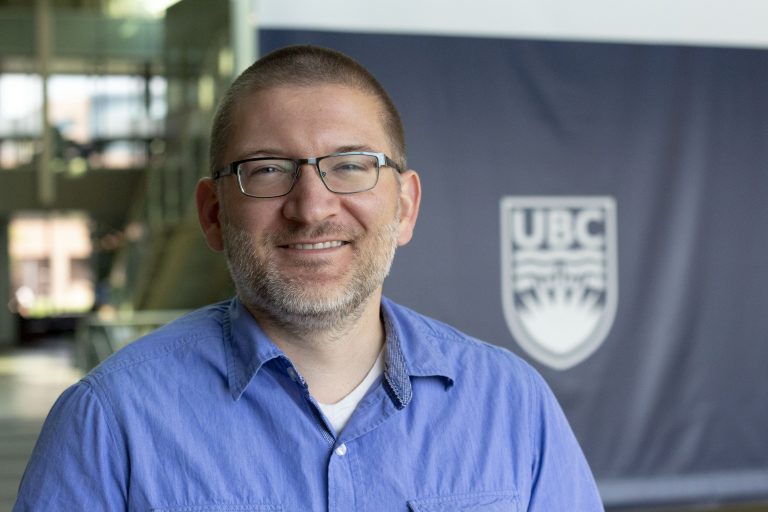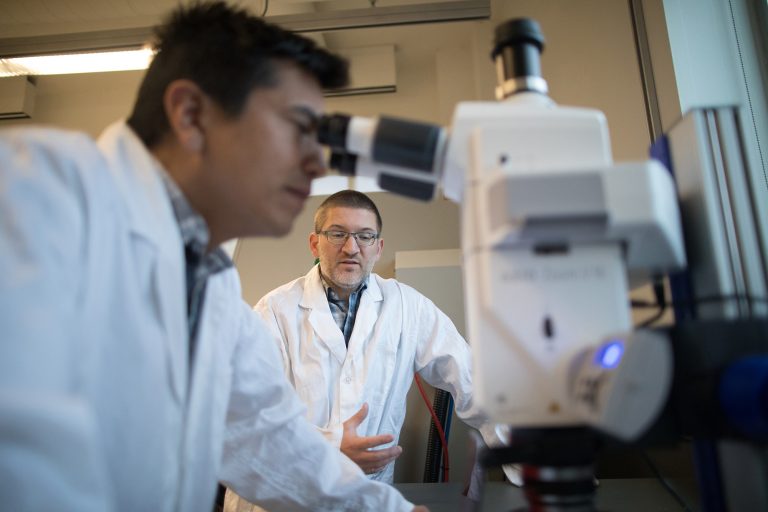
“These changes won’t happen overnight, but I am proud of our progress to date. “
The idea of Indigenizing the profession of engineering and engineering curriculum is a popular theme on university campuses across Canada and North America, but for Associate Professor Ian Foulds, the concept is personal. Foulds, the UBC Okanagan Principal’s Research Chair (Tier 1) in Indigenous Reconciliation in Engineering, is passionate about teaching our students how to engage and consult with Indigenous communities in engineering contexts.
As a member of the Métis Nation of BC and an engineer, Foulds understands the importance of connecting engineers and aspiring engineers with Indigenous peoples and culture. “The Truth and Reconciliation Commission had a set of key calls to action for how professionals should be trained, and while engineers are not specifically mentioned, we see them as equally applying to our profession. Engineers interface with, and directly impact Indigenous communities through infrastructure and economic development projects. So, building student capacity for intercultural understanding, empathy, and mutual respect is critical in our profession contributing to Reconciliation.”
In his role as PRC, Foulds is developing a framework for preparing engineers to engage with Indigenous communities, developing models and best practices for incorporating Indigenous knowledge and perspective into engineering curriculums, promoting engineering to Indigenous students and establishing a multi-institution hub within BC for Indigenous Reconciliation in Engineering.
Combining all those initiatives is no small feat, but Foulds along with UBC and the School of Engineering see the importance of this cultural shift.
“These changes won’t happen overnight, but I am proud of our progress to date, “says Foulds. “UBC and the School of Engineering have been pushing forward in the area of Indigenizing engineering education, and we have seen gains, but we have really only begun.”

Foulds and Assistant Professor of Teaching Jannik Eikenaar received a UBC Okanagan’s Aspire Learning and Teaching (ALT) Funding initiative award in 2018 to support curriculum change, innovate teaching practices and learning environment enhancements through Indigenous-focused modules as envisioned by the campus’ strategic plan.
As a result, Foulds has been leading an initiative at the School of Engineering to meticulously go through its curriculum to identify areas in which it can Indigenize content and delivery. He has been presenting “Indigenous Minutes” at Faculty Council meetings to help the faculty to learn material that they were never taught themselves, and they have embraced this concept and approach.
After several years of development, the School is launching an inter-cultural communication online module-based program that addresses issues of diversity, empathy and racism. The program tracks participants and provides badges to those who successfully complete the course.
As he sits in his office on the fourth floor of EME’s tower two, Foulds is encircled by 3D printers and microscopes. “This isn’t the sort of process that happens overnight, it takes time, and real compassion from all involved. I am privileged to serve and play a small role in this change.”